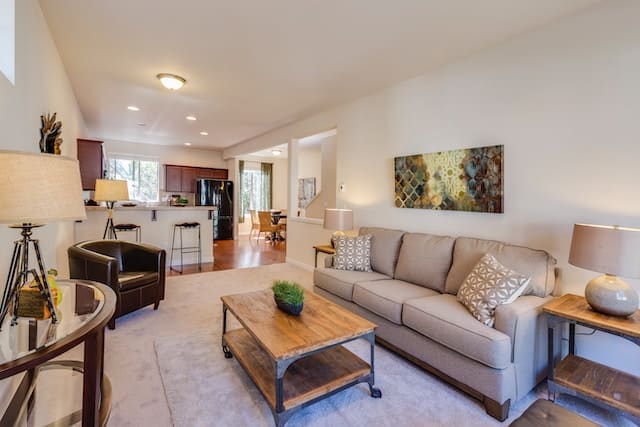The only way is up – roof top development
Dyan Letts gives an insight into developing into the roof tops
You own the freehold of a block of flats. What could be easier than to build another floor on top and develop the roof space? Easy right? You can park plant and store materials in the nice big communal car park, so what’s the problem? Why are the legal fees quoted by my lender so high and why are they making it so difficult by raising so many endless issues?
Roof top developments – common questions
These are some of the common questions I receive surrounding roof top developments. In my experience, they can be very successful, but the key really is getting the right legal advice from day one and keeping existing leaseholders happy. Some of the best roof top developments I have seen are where the landlord/developer has fully engaged with the leaseholders from the outset. I know developers that have provided an upgrade to communal areas by way of compensation for the likely disruption caused by the rooftop works; this can be at a relatively minor cost to the developer but is very well received by the residents. Remember, disgruntled leaseholders can be difficult to manage and are more likely to be obstructive. As an apartment dweller myself, I know from experience it only takes one unhappy resident to disrupt an entire block.
The most common issue that I have seen is for developer/landlord clients (and sometimes rather scarily their advisers) to be completely unaware of the rights that leaseholders have under the provisions of the Landlord and Tenant Act (1987). This Act is an important piece of legislation and has far-reaching consequences. Failure to comply is a criminal offence. In particular, care needs to be given as to whether the development of the rooftop constitutes a disposal of the freehold for the purposes of section 5 of the Act. If it does, this requires the service of notices on individual qualifying leaseholders within prescribed time limits. This is a fairly niche part of property law and I would strongly urge clients considering a roof top development to get appropriate advice. Now the penny should be starting to drop as to why the lenders’ legal fees seem high.
First things first – good advice if you are considering developing upwards
As a basic starting point, existing leases should also be checked to ensure that the airspace/roof space has not been granted to existing leaseholders either intentionally or by way of error. If either is the case, then the roof top development cannot proceed.
Ideally, existing leases should also contain the relevant reservations, including the express right for the landlord to develop. Attempting to rely on a reservation within the lease allowing works of repair is unlikely to succeed. Consider, for instance, a situation whereby the whole building needs strengthening in order to take the weight of the additional floor. Existing leaseholders could face months of disruption and mess. It only takes one knowledgeable owner to galvanise the others into action. The Landlord does not want to inadvertently breach the lease by disturbing the leaseholder’s rights to quiet enjoyment. However, it is not all doom and gloom and in the absence of the relevant reservations, we have managed to cover-off these points by way of title insurance.
Particular construction issues related to roof top developments
On top of all this, other standard construction issues need to be considered with particular attention given to rights to light, party wall, oversailing agreements for cranes, negotiating with service providers and removal of plant/aerials currently on the roof top. That car park you wanted to use is likely to be for the exclusive use of residents and their visitors, so you need to bear this in mind for storage and access.
In summary…
The list is not exhaustive; nor is it intended to be. I believe we are going to see an increase in roof top developments and the takeaway from this brief summary is very simple: please get appropriate legal advice early on and engage with the existing occupiers.
Dyan Letts is BLG’s Credit Operations Director and a great support to BLG’s housebuilder clients.

